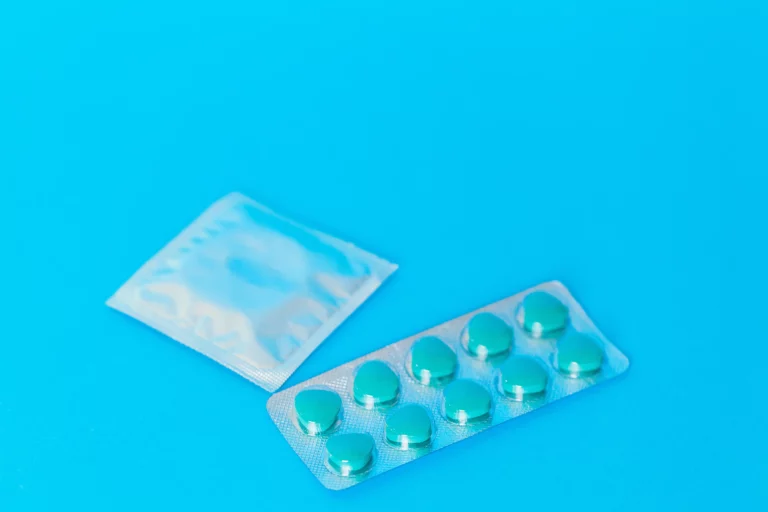The prostate, a small gland responsible for the production of seminal fluid in men, deserves more attention when it comes to nutritional care. The foods we eat can have a significant impact on prostate health and may help prevent prostate-related conditions like benign prostatic hyperplasia (BPH) and prostate cancer. Here, we’ve compiled a list of foods that are not only delicious but also packed with nutrients beneficial for your prostate health.
Tomatoes
Tomatoes are a versatile food item that packs a potent nutritional punch. They are particularly rich in lycopene, a carotenoid antioxidant responsible for their vibrant red color. This compound has attracted significant scientific interest due to its protective effects against oxidative stress and inflammation, which are linked to many chronic diseases, including cancer.
Research has suggested that regular consumption of lycopene-rich foods, such as tomatoes, can help reduce the risk of prostate cancer. Furthermore, some studies have indicated that lycopene can help manage symptoms associated with benign prostatic hyperplasia (BPH), a condition characterized by the enlargement of the prostate gland. This highlights the potential role of lycopene in maintaining overall prostate health.
Interestingly, the bioavailability of lycopene increases when tomatoes are cooked or processed. So, incorporating tomato products like tomato paste, tomato sauce, or canned tomatoes into your meals might offer enhanced benefits. However, remember to monitor the sodium content in processed tomato products, as excessive sodium intake can lead to other health issues.
Fatty Fish
Fatty fish, including salmon, mackerel, sardines, and trout, are celebrated for their high omega-3 fatty acid content. These polyunsaturated fats are essential for the body, meaning they must be obtained from the diet. Omega-3s have been studied for their role in reducing inflammation and supporting cardiovascular health, but they may also offer specific benefits for prostate health.
Several studies have found that men who consume more omega-3-rich fish or take fish oil supplements have a lower risk of developing prostate cancer. It’s hypothesized that these fats may inhibit the growth of cancer cells and reduce inflammation in the prostate tissue. This effect may stem from the balance between omega-3 and omega-6 fatty acids in the diet, which can influence inflammation and cell growth.
To harness the benefits of omega-3 fatty acids for prostate health, aim for at least two servings of fatty fish per week. If fish isn’t to your liking, consider omega-3 supplements, but always consult with a healthcare provider before starting any new supplement regimen.
Berries
Berries, such as strawberries, blueberries, blackberries, and raspberries, are not only delicious but also densely packed with a variety of antioxidants. These compounds help neutralize harmful free radicals in the body, reducing oxidative stress and inflammation, which are key factors in the development of many chronic diseases.
The high antioxidant content of berries may have specific benefits for prostate health. Research has indicated that antioxidants can help protect the prostate cells from oxidative damage, which can lead to cell mutation and cancer development. Regular consumption of berries may thus contribute to maintaining a healthy prostate and reducing the risk of prostate cancer.
Moreover, berries are an excellent source of dietary fiber, which can support overall digestive health and help manage body weight. This is crucial, as obesity is a risk factor for many health conditions, including prostate cancer. So, including a variety of berries in your diet is a tasty way to boost your antioxidant intake and support not only prostate health but overall wellbeing.
Broccoli
Broccoli, a member of the cruciferous vegetable family which also includes cauliflower, cabbage, and Brussels sprouts, is well-known for its health-promoting properties. The benefits of broccoli and its cruciferous cousins can be attributed to their high content of sulforaphane, a sulfur-containing compound that exhibits potent antioxidant and anti-inflammatory properties.
Sulforaphane has been extensively studied for its cancer-fighting potential. It has been found to inhibit the growth and proliferation of cancer cells and promote their apoptosis, or programmed cell death. In the context of prostate health, studies have suggested that regular consumption of sulforaphane-rich foods can reduce the risk of prostate cancer.
Another noteworthy aspect of broccoli and other cruciferous vegetables is their high fiber content. Dietary fiber can support overall health by promoting healthy digestion, managing weight, and stabilizing blood sugar levels. Furthermore, research suggests that a high-fiber diet can lower the risk of developing various health conditions, including certain types of cancer. Thus, regular consumption of broccoli and other cruciferous vegetables can contribute to prostate health and overall wellbeing.
Nuts and Seeds
Nuts and seeds, including almonds, walnuts, flaxseeds, and chia seeds, are nutritional powerhouses. They are rich in essential nutrients, including heart-healthy fats, protein, fiber, vitamins, and minerals. One mineral found abundantly in nuts and seeds is zinc, which is of particular importance for prostate health.
Zinc plays a critical role in various biological processes, including cell growth, immune function, and DNA synthesis. In relation to the prostate, it has been found that the prostate tissue contains the highest concentration of zinc in the body, suggesting its importance for prostate health. Furthermore, some studies have indicated that a deficiency in zinc might be associated with an increased risk of prostate cancer and BPH.
In addition to zinc, nuts and seeds are rich in healthy fats and fiber, which can support overall health and wellbeing. Healthy fats can reduce inflammation and support heart health, while dietary fiber can help manage weight, support digestive health, and reduce the risk of various health conditions. So, including a variety of nuts and seeds in your diet can be a great way to support prostate health and overall nutritional wellbeing.
Green Tea
Green tea has been revered for centuries in many cultures for its medicinal properties. It is packed with polyphenols, plant-based compounds that act as powerful antioxidants and anti-inflammatory agents. Among the polyphenols, a group called catechins, including epigallocatechin-3-gallate (EGCG), has been most extensively studied.
The catechins found in green tea have been shown to inhibit the growth of cancer cells, including prostate cancer cells, and reduce inflammation. Some studies have even suggested that regular consumption of green tea might prevent the progression of prostate cancer and improve prognosis in men with this disease.
In addition to its potential benefits for prostate health, green tea can support overall health in various ways. It can aid in weight management, support heart health, and improve cognitive function. Therefore, incorporating green tea into your regular diet can provide a host of health benefits, including supporting a healthy prostate.
Pomegranate Juice
Pomegranate juice has been appreciated for its health benefits for centuries, and modern science has started to affirm these traditional beliefs. This vibrant, sweet-tart juice is loaded with antioxidants, including a unique type of polyphenols called punicalagins, which are particularly potent.
In the context of prostate health, some research suggests that pomegranate juice can slow the growth of prostate cancer cells and even induce apoptosis, or programmed cell death. It’s thought that the high antioxidant content of pomegranate juice may protect the prostate cells from oxidative damage, which can lead to cell mutation and cancer development.
In addition to its potential cancer-fighting properties, pomegranate juice can support overall health in various ways. It can reduce inflammation, support heart health, and improve memory and cognitive function. However, keep in mind that pomegranate juice can be high in sugar, so it’s best to consume it in moderation as part of a balanced diet.
Legumes
Legumes, including beans, lentils, and peas, are a staple in many healthy diets around the world. They are an excellent source of plant-based protein and dietary fiber, and they also provide a variety of essential vitamins and minerals. Additionally, legumes are rich in bioactive compounds that can offer various health benefits.
One group of bioactive compounds found in legumes is phytoestrogens, which can act similarly to the hormone estrogen in the body. Some research suggests that these compounds can reduce the risk of prostate cancer. Furthermore, the high fiber content of legumes can support overall health by promoting healthy digestion, managing weight, and stabilizing blood sugar levels.
Another noteworthy aspect of legumes is their high folate content. Folate, or vitamin B9, is essential for many bodily functions, including DNA synthesis and repair. Some studies have suggested that adequate folate intake can reduce the risk of cancer development, including prostate cancer. Therefore, incorporating a variety of legumes into your diet can support prostate health and overall wellbeing.
Turmeric
Turmeric, a vibrant yellow-orange spice, has been used for thousands of years as a medicinal herb. The primary active compound in turmeric is curcumin, which has been shown to have potent anti-inflammatory and antioxidant properties.
In terms of prostate health, some research suggests that curcumin can inhibit the growth and spread of prostate cancer cells. It’s thought that the anti-inflammatory and antioxidant properties of curcumin may protect the prostate cells from damage that can lead to cell mutation and cancer development.
Turmeric can be easily incorporated into the diet in various ways, such as in curries, soups, and smoothies, or as a tea. However, curcumin is not easily absorbed by the body, and consuming it with black pepper can enhance its absorption. Furthermore, while turmeric is generally safe for most people, it can interact with certain medications, so it’s best to consult with a healthcare provider before starting any new supplement regimen.
Soy
Soy products, including tofu, tempeh, edamame, and soy milk, are common in many vegetarian and vegan diets. They are an excellent source of plant-based protein and provide various essential nutrients. Additionally, soy products are rich in isoflavones, a type of phytoestrogen, which can act similarly to the hormone estrogen in the body.
Isoflavones have been studied for their potential protective effects against various types of cancer, including prostate cancer. Some research suggests that men who consume more soy have a lower risk of developing prostate cancer. It’s thought that isoflavones may inhibit the growth of cancer cells and reduce inflammation in the prostate tissue.
In addition to their potential benefits for prostate health, soy products cansupport overall health in various ways. They are an excellent source of high-quality protein, which can support muscle health and aid in weight management. Furthermore, they provide dietary fiber, which can promote digestive health, and essential nutrients like iron, calcium, and vitamin B12.
Soy products are versatile and can be incorporated into the diet in various ways. You can enjoy tofu in stir-fries or soups, snack on edamame, or use soy milk as a dairy alternative. However, it’s best to choose minimally processed soy products and organic or non-GMO varieties when possible.
Remember, while diet plays a significant role in maintaining prostate health, it’s just one piece of the puzzle. Regular exercise, maintaining a healthy weight, and avoiding smoking and excessive alcohol can also contribute to a healthy prostate. Regular check-ups are vital, especially as you age, to detect any potential issues early. If you have concerns about your prostate health, always consult with a healthcare provider. A well-rounded approach that includes a balanced diet, regular physical activity, and regular check-ups can go a long way in supporting prostate health and overall wellbeing.






